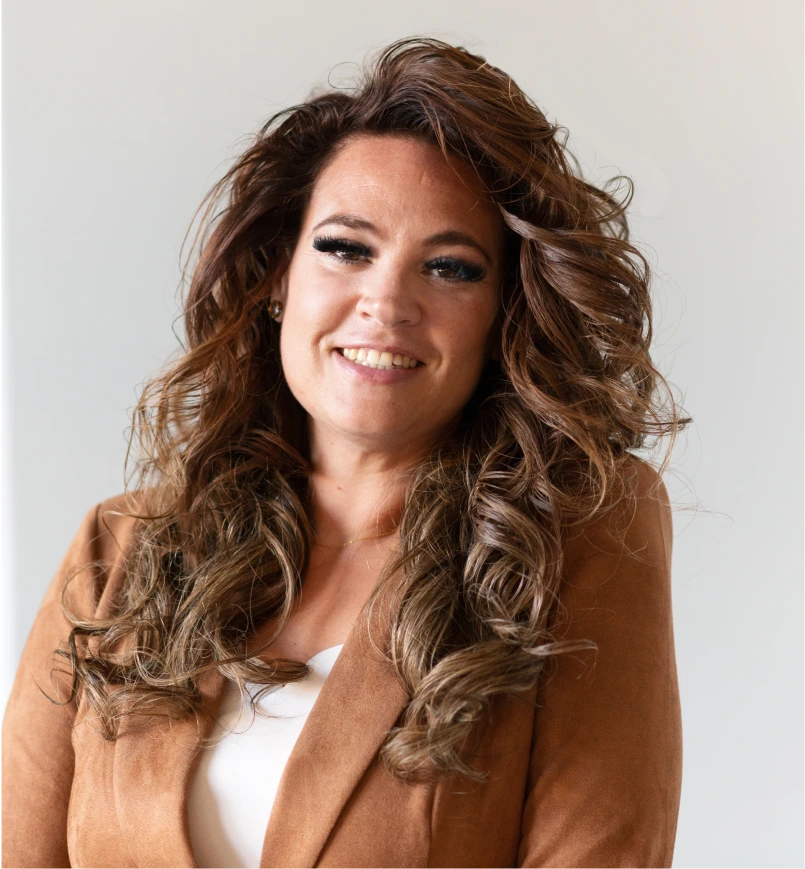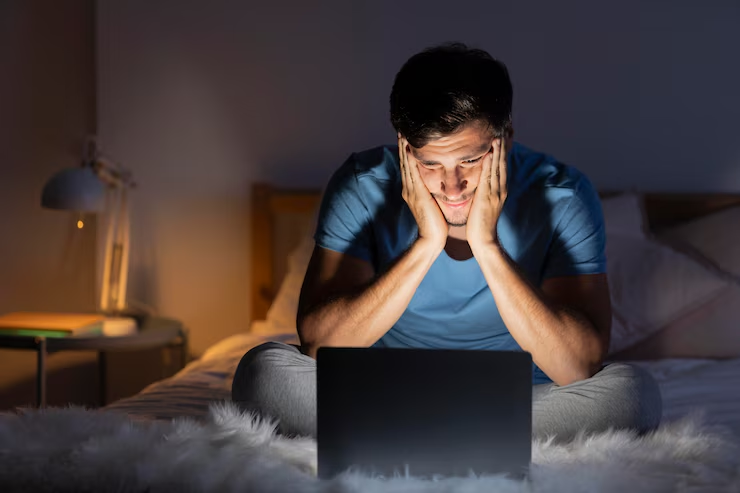Have you ever had trouble sleeping? Maybe you’ve tossed and turned all night, staring at the ceiling, wondering why you just can’t fall asleep. Insomnia is when you have trouble getting enough sleep, and it’s something a lot of people deal with. But don’t worry—there are ways to fix it!
In this post, we’ll talk about how anxiety is one of the main causes of insomnia, how anxiety affects your sleep, and some easy CBT-I (Cognitive Behavioral Therapy for Insomnia) strategies to help you get better sleep.
Anxiety is one of the main causes of insomnia
When you feel anxious or worried, it can be hard to sleep. Your mind keeps racing, and it’s hard to calm down. Anxiety is one of the main causes of insomnia. Here’s how it works:
- Hyperarousal: Anxiety puts your brain and body on high alert, like when you’re scared. Your body feels as if it’s ready to run away or fight, even when you’re just lying in bed. This makes it harder for your body to relax and sleep.
- Racing Thoughts: When you’re anxious, you might start thinking about a lot of things. You might worry about school, friends, or what might happen tomorrow. These thoughts keep your brain busy and stop you from falling asleep.
- Physical Symptoms: Anxiety can make your body feel restless. You might have a fast heartbeat, feel tense, or have trouble breathing. These feelings can make it even harder to sleep.
How Anxiety Affects Your Sleep
Your body has two systems that control how you feel: the sympathetic nervous system and the parasympathetic nervous system. When you’re anxious, your sympathetic nervous system (the “fight or flight” system) turns on. This makes your heart race and muscles tense, keeping you alert and awake—making it hard to relax and sleep.
On the other hand, your parasympathetic nervous system helps you relax. But when you’re anxious, it has trouble taking over, so your body stays in “alert” mode instead of calm mode, which keeps you from falling asleep.
When you’re anxious, your body releases stress hormones like adrenaline and cortisol, which make you feel awake and alert. This keeps you from getting the deep rest your body needs.
CBT-I Strategies for Better Sleep
CBT-I stands for Cognitive Behavioral Therapy for Insomnia, which is a type of therapy that helps you get better sleep. It teaches you how to change your thoughts and habits to sleep better. Here are some CBT-I strategies that can help:
| Strategy | How it Works | Tips |
|---|---|---|
| Sleep Restriction | Spend less time in bed. Limit your time in bed to the hours you actually sleep. If you sleep 6 hours, only spend 6 hours in bed. Slowly increase time in bed as sleep improves. | Only go to bed when you're tired. If you can't sleep after 15 minutes, get up and do something relaxing. |
| Stimulus Control | Use your bed only for sleeping. If you can't sleep, get out of bed and do something relaxing, like reading or listening to music. Avoid TV or phone as the light keeps you awake. | Use your bed only for sleep and rest—avoid other activities like homework or watching TV in bed. |
| Relaxation Techniques | Helps you calm your body and mind to get ready for sleep. | Progressive Muscle Relaxation: Tense and relax muscles starting from your toes to your head. Deep Breathing: Breathe in for 4 seconds, hold for 4, exhale for 4. Guided Imagery: Picture a peaceful place, like a beach or forest. |
| Changing Your Thoughts (Cognitive Restructuring) | Challenge negative thoughts like "I’ll never get enough sleep." Replace them with calming thoughts. | Ask yourself if the thought is helpful or what the worst outcome is. Replace anxious thoughts with more calming ones. |
| Sleep Hygiene | Good sleep habits help your body know it’s time to sleep. | Set a Regular Bedtime: Go to bed and wake up at the same time every day. Bedtime Routine: Take a bath, read, or listen to music before bed. Create a Sleep-Friendly Room: Keep it cool and dark. Avoid caffeine and sugar in the evening. |
If based on this information you believe you may have insomnia due to anxiety and want treatment (*and live in the state of Utah) Dr. Cariello is expertly trained in treating both anxiety and insomnia. Click the button below to schedule your free 15 minute consultation.
Your Story, Your Journey, Your Healing

By Dr. Anna Cariello
March 16, 2025


